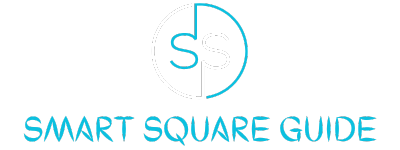Geisinger’s Smart Square: Revolutionizing Healthcare Scheduling
In the ever-evolving landscape of healthcare, the efficient scheduling of staff and resources is paramount. The article explores the future of healthcare scheduling, focusing on the success of Geisinger’s Smart Square solution.
The Importance of Efficient Healthcare Scheduling
Efficient healthcare scheduling is the backbone of a well-functioning healthcare system. It ensures that the right staff members are available at the right time, leading to improved patient care and reduced operational costs.
Geisinger’s Smart Square: An Innovative Solution
Geisinger’s Smart Square is a revolutionary software solution designed to streamline healthcare scheduling. It offers features such as predictive analytics, staff allocation, and real-time adjustments.
Benefits of Smart Square Scheduling
Improved Staffing Efficiency: Smart Square optimizes staff scheduling, reducing overstaffing and understaffing, which can lead to cost savings and improved employee satisfaction.
Enhanced Patient Care: By ensuring the right staff is available when needed, Smart Square enhances patient care quality and reduces waiting times.
Challenges and Solutions
Overcoming resistance to change is a common challenge in adopting new healthcare scheduling technologies. Geisinger has addressed this by offering training and support to staff members.
The Future of Healthcare Scheduling
The future of healthcare scheduling is marked by advancements in predictive analytics and telehealth integration. Predictive analytics will help in forecasting patient needs, while telehealth integration will enable more flexible scheduling.
Case Study: Geisinger’s Success Story
Geisinger’s success story showcases how Smart Square has improved scheduling, reduced costs, and enhanced patient care. It serves as an inspiring example for other healthcare institutions.
Patient Experience and Satisfaction
Patient experience and satisfaction play a pivotal role in healthcare. Smart Square ensures that the right staff members are available to meet patient needs promptly, leading to improved satisfaction.
The Role of Technology
Technology is at the heart of the future of healthcare scheduling. It allows for real-time adjustments and data-driven decision-making, ultimately benefiting both staff and patients.
Integrating Smart Square into Healthcare Systems
The integration of Smart Square into healthcare systems requires careful planning and training. It’s essential to ensure that the technology works seamlessly with existing systems.
Industry-Wide Impact
Geisinger’s success with Smart Square is already having a significant impact on the healthcare industry, encouraging other institutions to adopt similar solutions.
The Human Touch in Healthcare
While technology is advancing, the human touch remains essential in healthcare. Smart Square enhances the human touch by optimizing staff availability, allowing more time for patient care.
FAQs
How does Smart Square improve staff scheduling?
Smart Square’s prowess lies in its utilization of cutting-edge predictive analytics, revolutionizing staff allocation. By analyzing historical data and real-time demand, it optimizes staffing levels with pinpoint precision. This eliminates the issues of overstaffing, where resources are wasted, and understaffing, which can harm patient care. The result is a harmonious scheduling system that efficiently matches the workforce to patient needs, ultimately lowering operational costs and improving staff satisfaction.
What benefits does Smart Square offer to patients?
Smart Square’s impact on patient care is profound. By ensuring that the right staff members are available when needed, it reduces waiting times and enhances overall patient satisfaction. Patients experience quicker access to care, shorter wait times, and a more personalized, responsive healthcare environment. This leads to better health outcomes and an overall superior experience for patients, making it a win-win for both healthcare providers and those they serve.
How does Smart Square address resistance to change?
Geisinger recognizes that change can be met with resistance, and Smart Square’s implementation is no exception. To mitigate this, Geisinger provides comprehensive training and support to staff members during the transition to Smart Square. This ensures that employees are comfortable with the new system, understand its benefits, and are confident in its use. The result is a smoother adoption process, with staff feeling empowered and prepared to embrace the positive changes Smart Square brings to their daily work routines.
What is the role of predictive analytics in healthcare scheduling?
Predictive analytics plays a pivotal role in healthcare scheduling by offering the ability to anticipate patient needs and allocate staff resources efficiently. By analyzing historical data and real-time information, predictive analytics can forecast when and where patients will require care. This allows healthcare facilities to allocate staff accordingly, reducing the likelihood of overstaffing or understaffing. The result is a well-balanced, cost-effective scheduling system that optimizes resource allocation and enhances patient care.
How does Geisinger’s success impact the healthcare industry?
Geisinger’s success with Smart Square sets a powerful precedent in the healthcare industry. It serves as an inspiring example for other healthcare institutions, motivating them to adopt similar solutions to improve their own scheduling and patient care practices. Geisinger’s success ripples through the industry, promoting innovation and efficiency, ultimately leading to industry-wide improvements in healthcare scheduling, staff allocation, and, most importantly, patient care quality.
Conclusion
In conclusion, Geisinger’s Smart Square is a game-changer in the world of healthcare scheduling. Its success story, driven by technology, data, and a focus on patient satisfaction, offers a glimpse into the promising future of healthcare scheduling. Embracing technology while preserving the human touch is the path forward for healthcare institutions.
